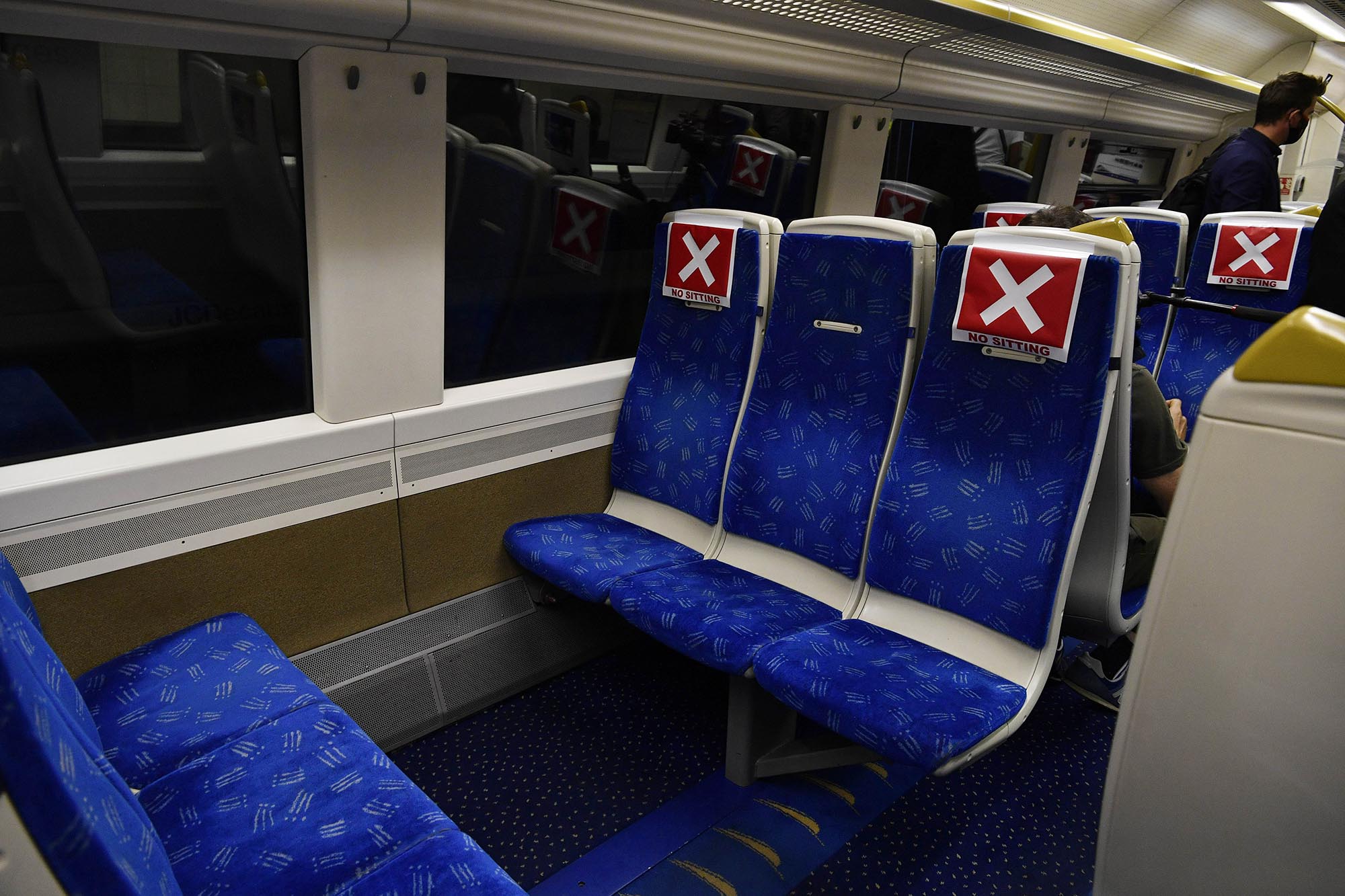What would the immediate future of rail service, particularly the Gautrain service look like and what role does public transport play in trying to curb the spread of Covid-19 in South Africa, was the biggest question that emerged during a webinar on Monday afternoon.
 Workers at an inspection of Gautrain's adherence to safety measures for commuters on 4 May 2020. (Photo: Lefty Shivambu / Gallo Images via Getty Images)
Workers at an inspection of Gautrain's adherence to safety measures for commuters on 4 May 2020. (Photo: Lefty Shivambu / Gallo Images via Getty Images)
The webinar, hosted by CNBC Africa, under the theme of “public transport in the time of Covid-19”, featured panellists such as chair of the ministerial advisory committee Professor Salim Abdool Karim, Gautrain CEO William Dachs, United Commuter Voice Gauteng chairperson Paul Soto and acting CEO of the rail oversight body, the Railway Safety Regulator, Tshepo Kgare.
“The virus cannot move by itself; people move the virus,” said Professor Abdool Karim, who delivered the opening remarks. He said there was “no question” that public transport played a key role in the transmission and prevention of Covid-19, and that “our focus has largely been on adequate social distancing and of course, ventilation”.
 Physical distance indicators during an inspection by Minister of Transport Filike Mbalula of Gautrain’s adherence to safety measures. (Photo: Gallo Images / Lefty Shivambu)
Physical distance indicators during an inspection by Minister of Transport Filike Mbalula of Gautrain’s adherence to safety measures. (Photo: Gallo Images / Lefty Shivambu)
While Gautrain has operated with limited services under lockdown, Transport Minister Fikile Mbalula announced last week that passenger rail loading is limited to 70% of usual capacity.
Gautrain CEO Dachs said usually, between March and July, the Gautrain serves about four million users, but now “only 12%” of that figure is using the service. Dachs surmised that people are either working from home or opting to use private cars to lessen their risk of contracting Covid-19. The Gautrain resumed services on 4 May under Level 4 restrictions after it had been brought to a halt on the orders of Transport Minister Fikile Mbalula.
Dachs said the Gautrain had implemented the following safety mechanisms to help curb the spread of Covid-19:
- Disinfecting buses and trains after every use;
- Using fresh air for air-conditioned ventilation on buses;
- Equipping employees with personal protective equipment; and
- Providing sanitiser for commuters, including making use of foot pumps at sanitising stations to prevent the touching of sanitisers.
Paul Soto, chairperson of the Gauteng branch of United Commuter Voice, a lobby group advocating for safe rail services, said while “commuters are disciplined using Gautrain” — including wearing masks and practising physical distancing, he was concerned about the “consistency” of sanitising self-service stations where people added points to cards.
When asked by panel moderator Fifi Peters about other measures commuters should take to prevent contracting Covid-19 while making use of public transport, Soto said:
“If there is really, really no need to travel, stay at home.”
Dachs said while the pandemic was still happening, and afterwards, there needed to be a “proactive effort” to ensure the survival of public transport as more people would now use private cars to commute instead of using taxis, trains and buses. DM




 Physical distance indicators during an inspection by Minister of Transport Filike Mbalula of Gautrain’s adherence to safety measures. (Photo: Gallo Images / Lefty Shivambu)
Physical distance indicators during an inspection by Minister of Transport Filike Mbalula of Gautrain’s adherence to safety measures. (Photo: Gallo Images / Lefty Shivambu) 